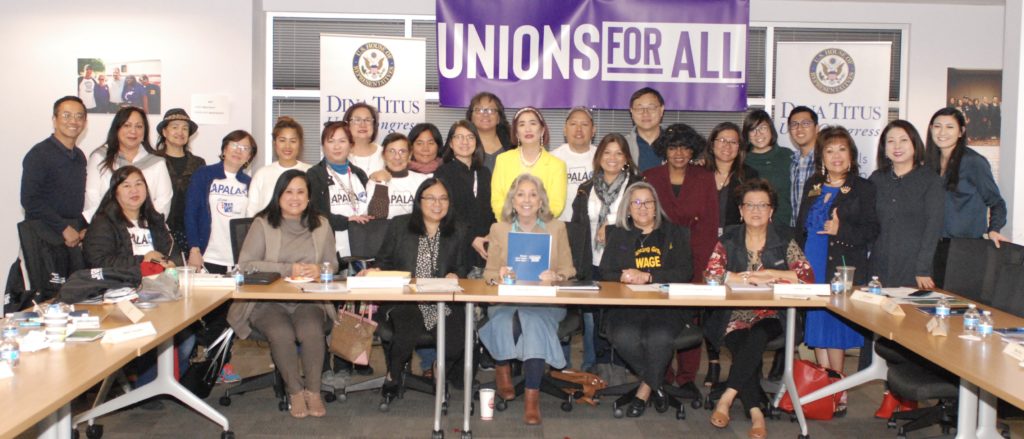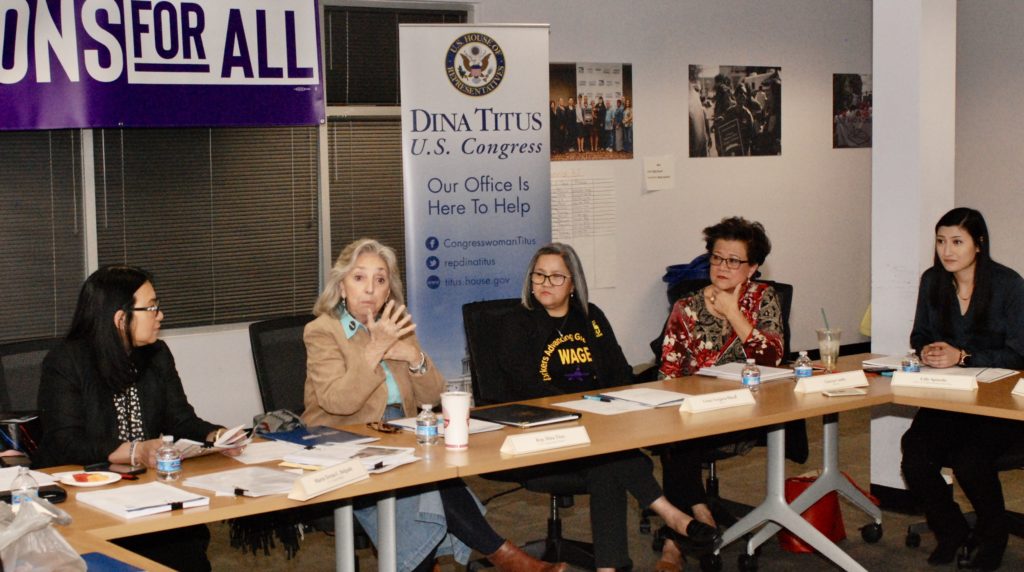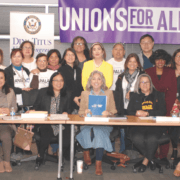
LAS VEGAS — With Census Day approaching on April 1, local Asian American and Pacific Islander (AAPI) organizations are beginning to encourage community members to fill out the questionnaire.
The 2020 Census will mark the first time U.S. residents can respond online in addition to the traditional phone or mail options.
During a roundtable hosted by Rep. Dina Titus (D-Nev.) on Saturday, January 11, University of Las Vegas, Nevada students and representatives from SEIU Local 1107, the National Federation of Filipino American Associations (NaFFAA), the Las Vegas Asian Chamber of Commerce, Asian Pacific American Labor Alliance and AAPI media shared concerns community members are having about the census and posed questions to census field staffers.
Titus acknowledged that AAPIs are the fastest-growing bloc in Nevada, but that many fear how their information will be used so it’s up to trusted individuals to reassure others how the results will determine the amount of funding the community receives.
Based on the five-year American Community Survey from 2013 to 2017, there are 203,606 Asians and 15,583 Native Hawaiian and Pacific Islanders in Clark County alone.
“We’ve got to be sure that people aren’t hidden anywhere. Often times, people are much more willing to give what they think is their personal information to somebody that they trust, somebody from their community,” Titus said.

The census, which is done every 10 years, will become available in March 2020. The questionnaire will ask questions, such as how many people live in each home and sex, age, and race of each resident.
Field takers will start visiting residents from mid-May to August if they haven’t responded through any of the three options. The official counts are scheduled to be delivered to the president by December.
The data results determine what portion of over $700 billion in federal funding each state will receive annually and how many congressional seats each gets.
In 2016, Nevada received $6.2 billion through 55 federal spending programs based on data from the 2010 census, such as Medicaid, SNAP benefits, Section 8 housing vouchers, and child care programs.
“One person always counts. It makes a difference. That’s what we have to remember,” said Maria Teresa Delgado, a partnership specialist from the Los Angeles Regional Census Center.
Language barriers have hindered various groups from participating in past rounds, however, the 2020 form will be available in five Asian languages, including Tagalog, Chinese, Japanese, Korean, and Vietnamese. Language guides are also accessible in a total of 59 non-English languages.
“If one person is not counted, one individual costs $2,000 and that’s for 10 years. It’s not much but you still make a difference,” Delgado said.
She added that children are often underrepresented in the census so it’s important to count them too, and that includes Infants who were born before April 1.
This week, the Census Bureau kicked off of a $500-million public education and outreach campaign to reach U.S. households with the message ‘Shape your future. Start here.’
The bureau aims to tell U.S. residents that the census is easy, safe and important.
“The responses that everyone submits in the questionnaire, they are confidential. All census employees took an oath that we cannot share any information with any agency — the FBI, ICE or local police. Everything is confidential,” said Delgado.






